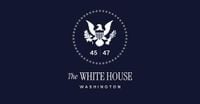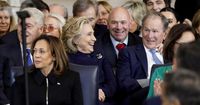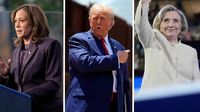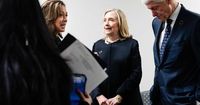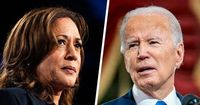On the night of March 21, 2025, U.S. President Donald Trump signed a memo revoking the security clearances for a number of high-profile figures, primarily targeting those he views as political opponents. This action includes prominent Democrats such as former Vice President Kamala Harris and former Secretary of State Hillary Clinton.
In his memo, Trump stated, "I have determined that it is no longer in the national interest for the following individuals to access classified information." The list of those affected extends beyond just Clinton and Harris, encompassing a total of 14 individuals including Secretary of State Antony Blinken, former national security adviser Jake Sullivan, and several others who have crossed paths with Trump in politically contentious scenarios.
The memo reflects a growing trend of political retaliation from Trump, who has taken a hard stance against anyone he perceives as a threat or adversary. Among those named were former House Representatives Liz Cheney and Adam Kinzinger, both vocal critics who played significant roles in the investigation of the January 6 Capitol insurrection, as well as New York Attorney General Letitia James and Manhattan District Attorney Alvin Bragg, who have pursued legal actions against Trump.
This latest measure demonstrates that Trump is not backing down from his previous communication regarding security clearances. Just weeks earlier, Director of National Intelligence Tulsi Gabbard had already revoked similar clearances from many of the same individuals named again by Trump. This unfoldment is seen as part of Trump's broader strategy since returning to the political stage, where he has consistently sought to marginalize and intimidate those he sees as enemies.
Trump's actions are also reflective of an increasingly divided political landscape, where the revocation of security clearances becomes not just a matter of national security but also a pawn in the political game. In a nod to this dynamic, Trump had previously stated that revoking these clearances was necessary to curb what he termed the "weaponization" of intelligence institutions against him.
The ramifications of such actions are extensive, as they can impede the careers and influence of those affected by the revocation. Notably, this memo restricts the individuals from receiving classified briefings, including the President’s Daily Brief, and denies them access to secure U.S. government facilities without an escort. This directive can significantly limit their involvement in governmental and advisory capacities.
In earlier events, Trump had revoked the clearances of close to 50 former intelligence officials, including his former national security adviser John Bolton. Legal experts at the time warned that such moves might serve to intimidate former officials and prevent them from speaking out against Trump.
The political tension crescendoed earlier this week when Trump announced he would also strip President Joe Biden's adult children, Hunter and Ashley, of their Secret Service protection, drawing further criticism regarding the lengths to which Trump is willing to go in his vendetta against his perceived foes.
Beyond the immediate repercussions, these actions set a precarious precedent regarding the security clearance process as a tool for political retribution. Security clearances have traditionally been an apolitical issue, governed by a consensus on necessity and trust, rather than used as a weapon against political rivals. The consequences of such a shift in practice could timeline into an age where political affiliations dictate national security engagements.
Despite the politically charged atmosphere, Trump remains unmoved, employing these tactics as a show of force while rallying his base around perceived injustice against him. In many respects, his administration is likening itself to a fortress, defending against what he describes as systemic efforts to undermine his presidency.
As the political landscape evolves, the implications of Trump's memorandum extend beyond political retribution into deeper discussions regarding governance, ethics, and the function of intelligence in a democratic society. The reactions from those affected and their supporters can shape this story in the coming days, as calls for investigations into Trump's use of executive power grow louder.
In conclusion, Trump’s revocation of security clearances stands as a clear signal of continuing political strife marked by retaliation. As Washington grapples with the consequences, the public awaits how these actions will shape the future dialogues surrounding accountability and governmental integrity.
